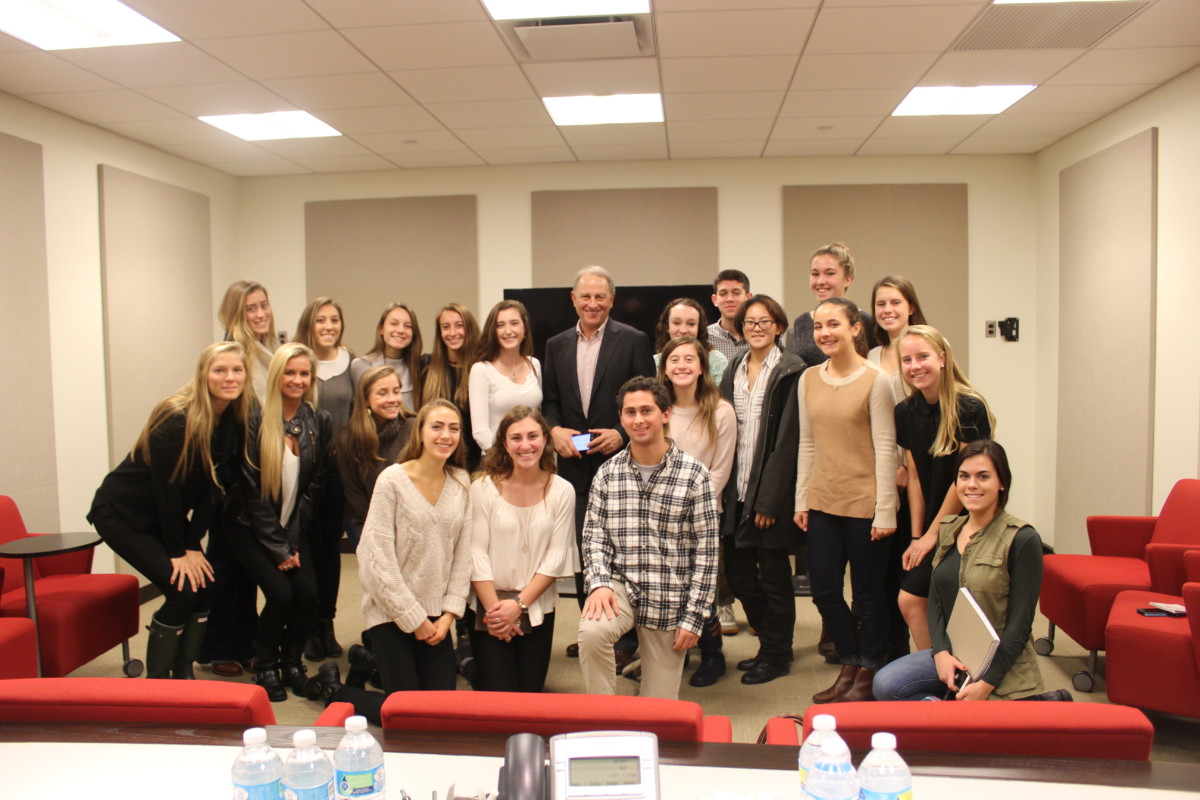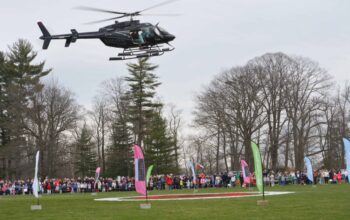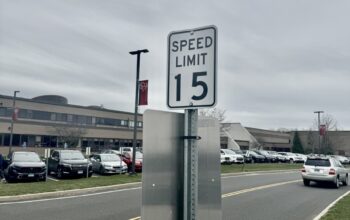Cat Levine, News Editor
@catcourant

Instead of walking to their first period classes, on Tuesday, November 15 the Courant staff grabbed their umbrellas and hopped on a train to the CBS 60 Minutes headquarters in New York City. Courant editors met with Executive Producer and former CBS News Worldwide President Jeff Fager and Coordinating Producer Alison Pepper in the screening room and was able to learn what a job in journalism looks like and how 60 Minutes is able to produce such a successful news program.
Senior Editor-in-Chief Molly Keshin, touring the CBS facilities, gave her a glimpse of what a future in communications looks like. “When we walked up from the subway and I saw that it was pouring rain, I was cursing myself for not bringing an umbrella,” she said. “But as we walked into 60 Minutes, that personal raincloud over my head immediately disappeared. Just knowing that I was in the presence of some of the most important, influential people in the world made me realize that a job like that is a reality for so many people, and that it could possibly be a reality for me.”
Junior Arts Editor Jillian Augustine felt that one of the most important things she learned from the CBS representatives were what qualities are needed to become a successful journalist. “Mr. Fager emphasized on how one of the most important qualities of a journalist is building trust with the sources that you are interviewing,” she said. “By promising the people that you are going to interview with complete fairness and accuracy in your story, it allows them to put their trust in you, and therefore you create good relations with important people who you may want to come back for another story.”
According to senior Editor-in-Chief Sam Stoner, 60 Minutes is unique is because of their ‘original reporting style,’ which makes the stories interesting and important, a goal which Mr. Fager emphasized. “Interviews with the U.S. Women’s National Soccer Team, Turkey’s president, and Bruno Mars make audiences want to watch because each interview could not be more different from the others, and that makes the show never go dull,” he said. “It is never repetitive, and always provides something new for the audiences to hear.”

Junior Arts Editor Eva Pace was surprised by the simplicity and effectiveness of how 60 Minutes is organized. “I knew that they had to be doing something spectacular if they managed to create such a successful business, and what surprised me most was that the case was quite the opposite,” she said. “Jeff Fager emphasized what he saw as two of the most important things in becoming a great journalist: fairness and likeability. There was not some magnificent marketing ploy, nor was there an elaborate scheme behind getting your interviews. 60 Minutes genuinely cares about the information they report, a simple quality that makes them stand out.”
Senior Editor in Chief Ellen Ludtke reflects on how 60 Minute’s respectable reputation allows reporters to establish connections and schedule interviews with well-known figures. “One thing Jeff Fager mentioned was that great journalists have certain personality traits: they’re likeable. They’re also skeptical and inquiring, but at the same time funny and humble,” she said. “Everyone we spoke with at 60 Minutes, including Mr. Fager, reflected these traits. Having this group of good people is what has makes 60 Minutes so successful: they are able to establish connections with interviewees, ask them questions to glean necessary information, and have the determination to make their story important and interesting.”
Jillian was impacted by the experience because it helped her to realize her passions for journalism. “This was really inspiring to me because it showed me the side of journalism that I don’t get to see on the daily news,” she said. “It showed me that journalism can be interpretive and fun and artful. Journalism can be anything: as long as it’s done with integrity and made interesting and important. That’s a message that really hit home for me and made me want to go into this field even more than before.”

Senior Centerfold Editor Sofia Paloka feels that the field trip was a great way for her to take the skills that she learned from the professionals and apply it to her own work in the Courant. “It is easy to get so caught up in the rhythm of reporting that the foundation of your work is lost. Through the words of Jeff Fager, journalism is storytelling,” she said. “Taking a step back from my own role as a journalism student in New Canaan High School and stepping into the shoes of an organization much larger allowed me to see this storytelling on a broader scale. I learned that although important events are vital to report, the way in which you do so can be much more impactful than the event itself.”
Junior Features Editor Allie Neugeboren believes that getting to meet Jeff Fager has shown her the true purpose and redeeming lessons that come from a career in journalism. “This trip was an experience I will never forget,” she said. “Jeff Fager strives to produce stories that highlight the truth and is someone who cares about the product he is producing, not the amount of money this story will bring.”
According to senior Centerfold Editor Brooke Holland, the fact that Jeff Fager is an NCHS graduate is a motivating factor to work even harder. “Do you have any idea how ‘worth it’ that makes all the work we are doing now appear? Walking into his office and seeing a picture of him arm wrestling Putin, followed by a sea of Emmys was a real kick of motivation,” she said. “Being a senior wrapping up first quarter and the college application process, this was something I really needed.”

Michael McAteer, Journalism teacher, hopes that the students learned important skills from 60 Minutes that they can apply to the Courant. “I think that students are surprised to see how much of what we do here resembles the way that a professional news organization works,” he said. “I hope that they can make the connection between the importance of something like 60 Minutes and the importance of telling stories about people in the NCHS community.”
Mr. McAteer also appreciates the time that the CBS staff put in to show the students around the headquarters and educate them on the skills that a journalist needs. “Every year and a half or 2 years, CBS news welcomes Courant reporters and their unbelievably generous with the amount of time that they give to high school kids when they still have all of the demands of putting that week’s show together,” she said.




